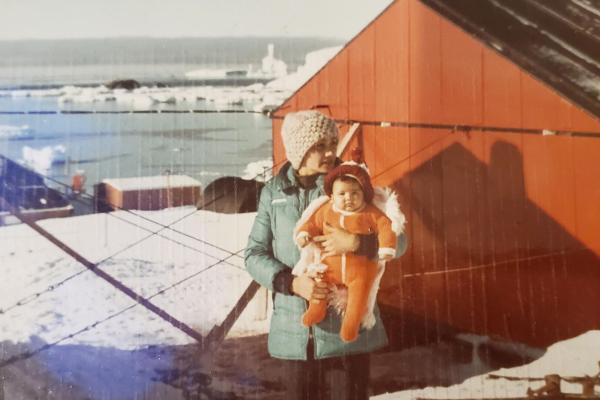
Join the Center for Latin American Studies, Columbus State Community College, and the Native Antarcticans organization for a 2-day symposium on Native Antarcticans from Latin American heritage. The event is free and open to the public, but registration is required. Live interpretation (Spanish/English) will be available.
Argentina and Chile have been the only two countries in the world who led pionerism into Antactican territory. The idea of creating family neighbourhoods in the Península was born with Argentine General Pujato in the 1940s and finally materialized around the 1980s with two family neighbourhoods: “Fortín Cabral”, in Base Esperanza, and “Villa Las estrellas,” in Base Frei Montalva. These neighbors allowed folks to foster social life and to inhabit the Souther territories of their nation. While a lot of hard science has been done about the continent, only in the last two decades have questions regarding the bond of humankind and nature in the extreme weather conditions in the White Continent emerged. In this environment, the values of communities co-living without borders were nurtured, i.e. peace, fraternity, solidarity, spirituality, and simplicity. The speakers in this symposium will reflect on what is the nature of the bond that ties the Souther Cone Native Antarcticans to their homeland.
Schedule
Thursday, February 27, 2025
1:00 - 1:10 Welcome remarks
1:10 - 1:40 Argentine Expeditionaries to Antarctica through History, Professor Juan Jose Brusasca (Ministerio de Educacion de la Ciudad de Buenos Aires, Argentina)
1:40 - 2:10 South American Native Antarticans from the International Law Perspective, Professor Fernando Villamizar Lamus (Universidad Bernardo O'Higgings, Chile)
2:10 - 2:40 Southern Cone Women Engineers in the White Continent, Alejandra Portatadino, Engineer and member of Ingeniería Sin Fronteras - Argentina
2:40 - 3:00 Q&A and general discussion
Friday, February 28, 2025
1:00 - 1:10 Welcome remarks
1:10 - 1:40 A Bio-Anthropological Insight into South American Native Antarcticans, Professor G. Raquel Pina (Columbus State Community College) and Marisa de las Nieves Delgado, first woman born in Antarctica and founder of Native Antarcticans
1:40 - 2:10 Public Health in Extreme Climate Conditions, Mariano Memolli, MD and Antarctic Affairs Advisor
2:10 - 2:40 Memoirs of childbirth: delivering five Argentine Native Antarticans, Ruben Pariggi, MD
2:40 - 3:00 Q&A and general discussion
3:00 - 3:30 A conversation with native Antarticans, Maria Sol Cosenza and José Manuel Valladares. Send your questions!
